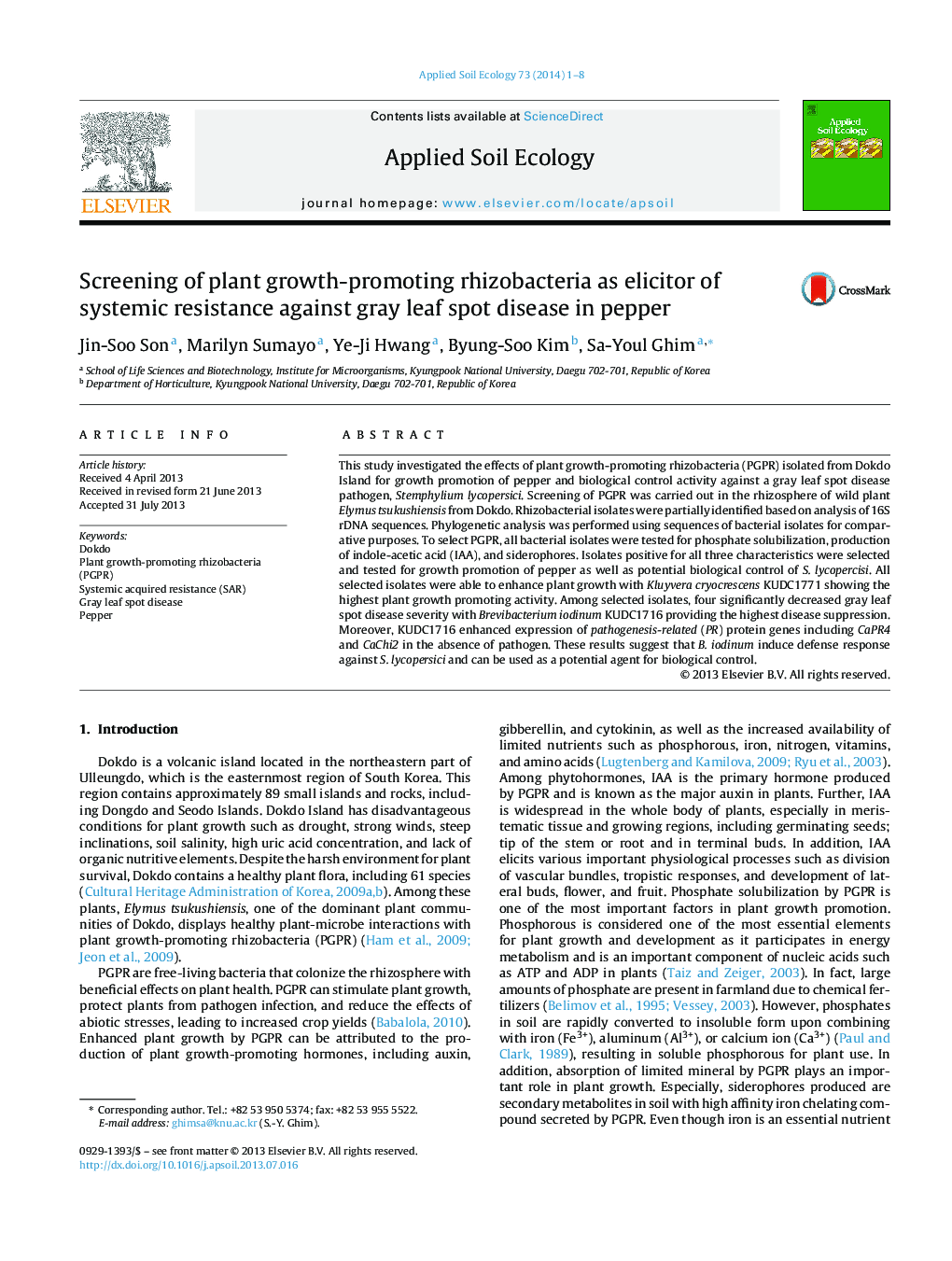| Article ID | Journal | Published Year | Pages | File Type |
|---|---|---|---|---|
| 4382360 | Applied Soil Ecology | 2014 | 8 Pages |
•We screened plant growth-promoting rhizobacteria from Elymus tsukushiensis rhizosphere.•All bacterial isolates were characterized for PGPR traits.•Some isolates were able to promote plant growth.•Brevibacterium iodinum KUDC1716 has highest disease suppression against gray leaf spot disease.•From the molecular assay, KUDC1716 elicits systemic acquired resistance (SAR).
This study investigated the effects of plant growth-promoting rhizobacteria (PGPR) isolated from Dokdo Island for growth promotion of pepper and biological control activity against a gray leaf spot disease pathogen, Stemphylium lycopersici. Screening of PGPR was carried out in the rhizosphere of wild plant Elymus tsukushiensis from Dokdo. Rhizobacterial isolates were partially identified based on analysis of 16S rDNA sequences. Phylogenetic analysis was performed using sequences of bacterial isolates for comparative purposes. To select PGPR, all bacterial isolates were tested for phosphate solubilization, production of indole-acetic acid (IAA), and siderophores. Isolates positive for all three characteristics were selected and tested for growth promotion of pepper as well as potential biological control of S. lycopercisi. All selected isolates were able to enhance plant growth with Kluyvera cryocrescens KUDC1771 showing the highest plant growth promoting activity. Among selected isolates, four significantly decreased gray leaf spot disease severity with Brevibacterium iodinum KUDC1716 providing the highest disease suppression. Moreover, KUDC1716 enhanced expression of pathogenesis-related (PR) protein genes including CaPR4 and CaChi2 in the absence of pathogen. These results suggest that B. iodinum induce defense response against S. lycopersici and can be used as a potential agent for biological control.
